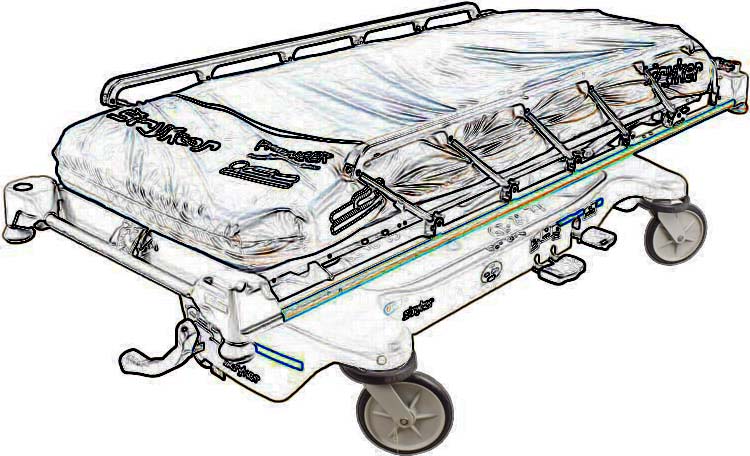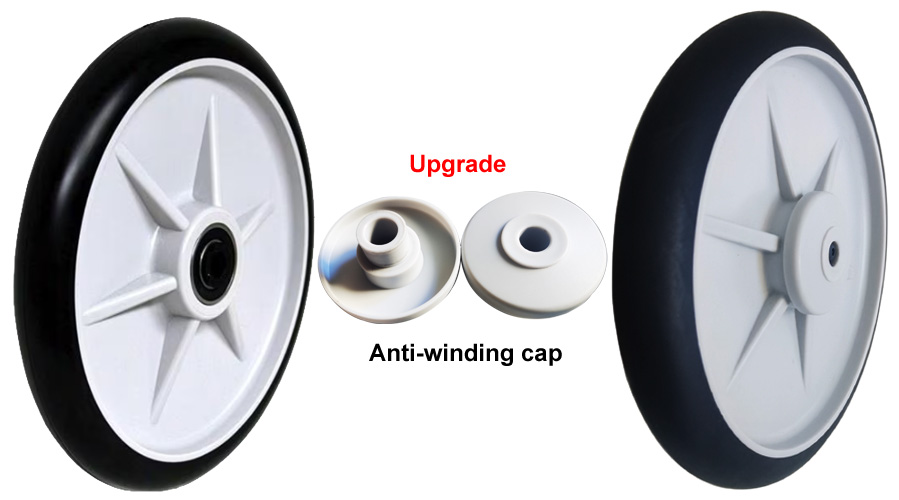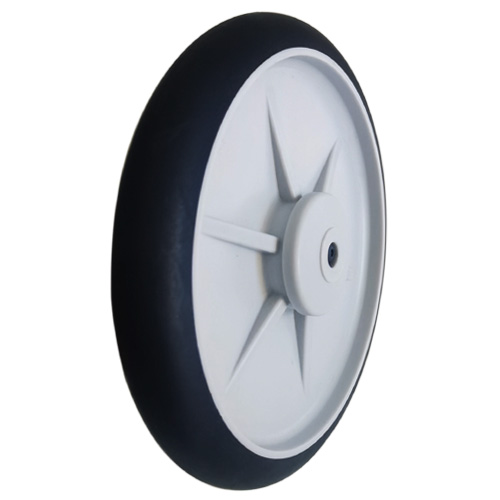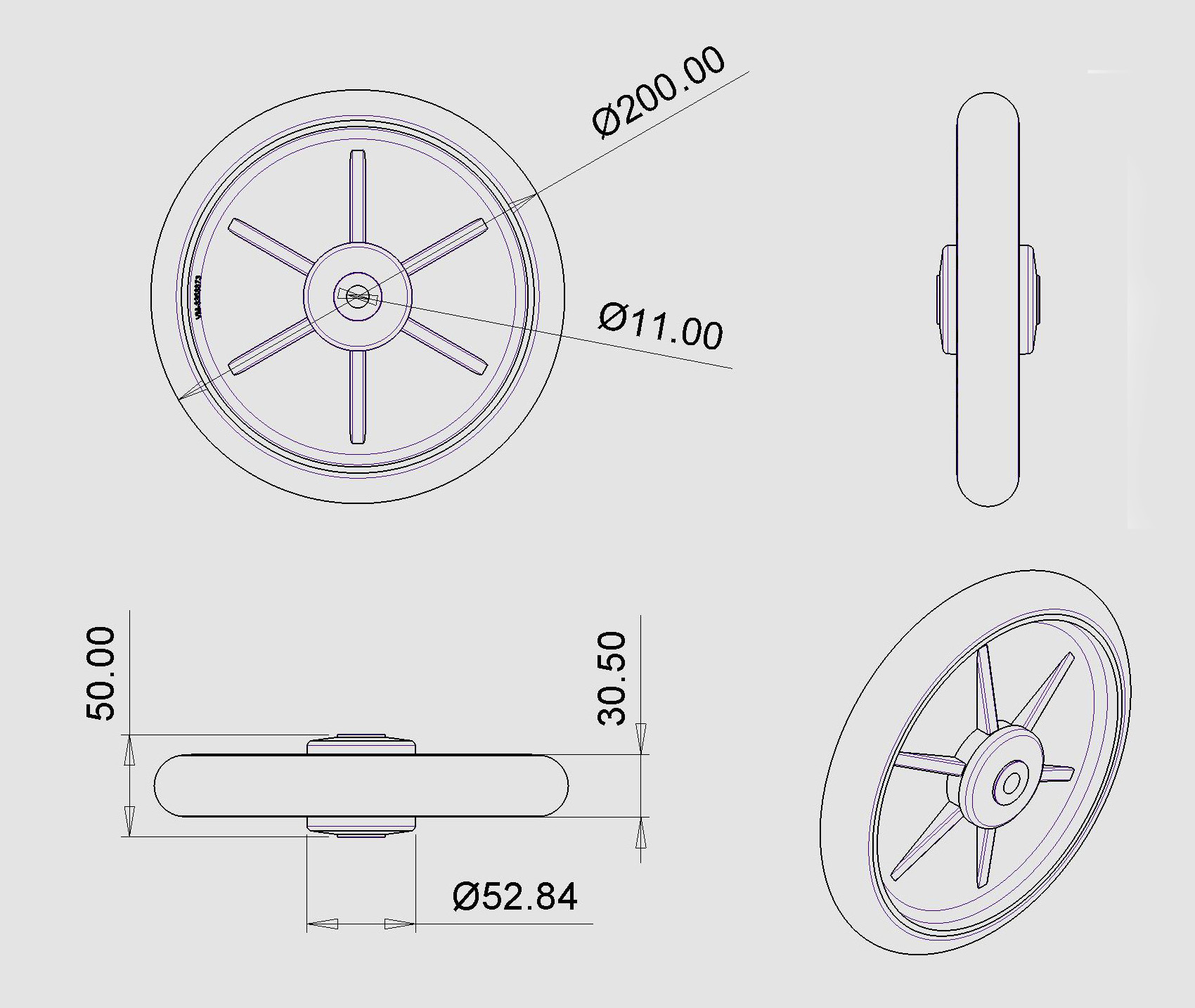- Best Price! Direct China Factory!
- Send Inquiry
WhatsApp/WeChat: 0086-137-36454395
In the medical world, equipment reliability is vital for patient care. One key piece of equipment often overlooked is the stretcher. Stryker stretchers, popular in hospitals and medical facilities, are trusted for their durability and ease of use. However, a stretcher is only as good as its wheels. Here, we’ll focus on 200mm (8 inch) Stryker stretcher wheels, discussing what they are, their importance, and how they work.
What Are 200mm / 8 Inch Stryker Stretcher Wheels?
These wheels are specifically designed for Stryker brand stretchers, which are used in medical settings to transport patients safely and comfortably. The 200mm (8 inch) measurement refers to the diameter of the wheels. These wheels are larger than standard casters found on some equipment, providing better mobility over various surfaces.
Stryker stretchers are known for being durable, easy to maneuver, and strong enough to handle heavy loads. Their wheels play a key role in ensuring these benefits are delivered every time they’re used.

Why the Size Matters
The 200mm / 8 inch size isn’t just an arbitrary number. Larger wheels like these have several advantages:
Smooth Rolling: Larger wheels roll more smoothly than smaller ones, which is especially important when moving over uneven floors or thresholds between rooms.
Less Effort Required: Bigger wheels reduce the amount of effort needed to push or pull a stretcher, making it easier for healthcare workers to maneuver patients through hallways, around tight corners, or into elevators.
Increased Durability: The larger size also means they are more durable and less likely to get stuck or damaged by small debris like dirt or pebbles.
Materials and Construction
These Stryker stretcher wheels are typically made from high-quality materials designed to last through heavy use. The most common materials include:
The outer part of the wheel is often made of rubber or TPE. These materials provide a quiet, smooth ride and offer great traction, preventing slippage. Rubber is a preferred material because it absorbs shocks, offering a smoother ride for the patient.
Plastic Core: The core of the wheel is made from a tough plastic material PP. This ensures that the wheel is strong enough to carry the weight of the patient and the stretcher without bending or breaking.
Bearings: Inside each wheel are double ball bearings, which help the wheels rotate freely and smoothly. Good-quality bearings reduce friction and make it easier to move the stretcher, even with a heavy patient.

Key Benefits of Stryker Stretcher Wheels
These wheels are designed to make patient transportation as efficient and smooth as possible. Here’s why they matter:
1. Improved Maneuverability
Large wheels are essential for moving patients through various hospital environments. Whether it's a smooth floor in an operating room or a rougher surface in a hallway, 200mm wheels ensure that the stretcher glides smoothly. This helps healthcare professionals move patients quickly and without jostling, which is critical for patients in fragile condition.
2. Safety
Having reliable wheels on a stretcher ensures patient safety. Unstable or broken wheels can lead to accidents that could injure both patients and healthcare workers. With 200mm Stryker stretcher wheels, safety is enhanced through their strong construction and reliable performance.
3. Durability
Medical equipment sees a lot of wear and tear, especially in busy hospitals or clinics. Stryker stretchers, equipped with these robust wheels, are built to last. High-quality materials make the wheels more resistant to damage from constant use, meaning fewer replacements and repairs are needed.
4. Quiet Operation
In healthcare environments, reducing noise can help create a calmer atmosphere for both patients and staff. These wheels are designed to operate quietly, which helps reduce distractions and maintains a peaceful environment, particularly in sensitive areas like intensive care units or recovery rooms.
Where Are These Wheels Used?
Stryker stretchers are found in various medical settings, and so are these wheels:
Hospitals: The most common setting. Hospital hallways, patient rooms, and emergency departments all rely on stretchers to move patients quickly.
Emergency Services: Ambulances often use Stryker stretchers for their reliability and easy handling. The large wheels make it easier to transport patients from accident scenes or homes to the ambulance.
Surgery Centers: Surgical centers often need stretchers to transport patients to and from the operating room. The smooth operation of these wheels ensures patients are moved gently, which is important for pre- and post-surgery care.
Nursing Homes and Rehabilitation Centers: In long-term care facilities, Stryker stretchers help transport patients between rooms or departments. The durable wheels ensure that even heavier patients are moved safely and comfortably.
200mm (8 inch) Stryker stretcher wheels are a small but essential part of patient care in medical facilities. Their size, material, and design contribute to smoother patient transport, better maneuverability, and enhanced safety. Whether in hospitals, emergency services, or long-term care facilities, these wheels ensure that stretchers can move patients smoothly and reliably.
By understanding the role these wheels play, healthcare providers can better maintain their equipment and ensure that every patient is transported safely and comfortably. Investing in high-quality Stryker stretcher wheels is an investment in patient care and the efficiency of medical operations.



 English
English Spanish
Spanish German
German Russian
Russian Arabic
Arabic Portuguese
Portuguese Italian
Italian French
French Hebrew
Hebrew Turkish
Turkish